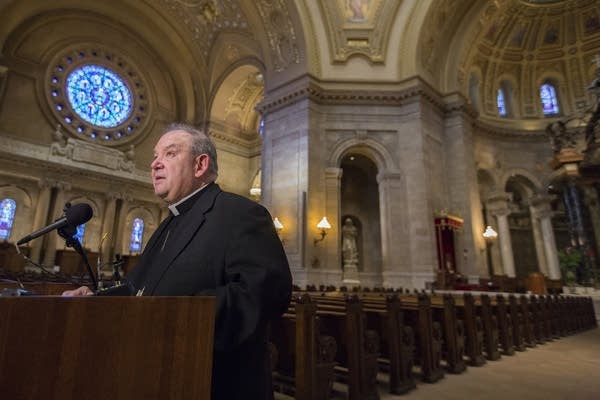Archbishop says worshippers need to gather in response to virus outbreak

Archbishop Bernard Hebda speaks during a news conference at St. Paul Cathedral in March 2016. Hebda says parishes have been working to reopen safely, including changes to deliver communion with masks at the end of Mass as churchgoers exit.
Leila Navidi | Star Tribune via AP 2016
Go Deeper.
Create an account or log in to save stories.
Like this?
Thanks for liking this story! We have added it to a list of your favorite stories.


